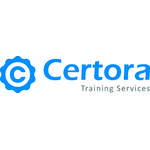Supporting UK Materials Handling Association (UKMHA)– Safely Using Forklift Trucks for Waste and Extractives Operations
As we head into October, we are keen to support the UKMHA (formerly known as FLTA) in their Safety Convention promoting best practice and providing safety advice for all forklift operator training on 17th November 2022.
The UKMHA is keen to discuss the safe and efficient ways in which forklift trucks should be used onsite in a bid to decrease the number of accidents happening.
We have a large number of customers operating within the waste recycling and extractives sectors and understand how using forklift trucks in this environment can be challenging. Our goal is to discover how we can create safer ways of working.
- Check your Equipment and Attachments
Counterbalance trucks play an integral role across many industry sectors due to the large range of attachments that can be used to carry out numerous tasks on just one piece of equipment– this includes attachments such as rotating forks, barrel clamps and tipping skips. It is important that attachment training is delivered on all individual equipment types due to its wide diversity; a ‘one size fits all’ training approach is not supported.
Changing an attachment alters the characteristics of the forklift truck and this must be accounted for e.g., a counterbalance forklift truck may have a rated load capacity of 200kg when fitted with standard forks. If you are using a bale clamp, factors like the weight of the clamp and the extension of the load centre must be taken into account and a new, smaller capacity calculated and clearly marked on the forklift truck.
- Check the Suitability of your Staff
There are significant steps to ensure your employees are adequately trained for the work activities they undertake and the equipment they will use. These steps are defined by the HSE and include the following:
- Suitable training method
- Delivery of training
- Effective evaluation of training
- Refresher training
However, training is just the first step. There must always be a high level of competence maintained and demonstrated when using the equipment – this must include risk assessments, maintenance plans and any health and safety updates/changes to the equipment.
Staff must be regularly monitored to ensure there is no complacency creep or cutting corners when operations get busy, or staffing becomes limited.
Remember when hiring, operatives may have a forklift truck license certificate for basic training, but are they suitably trained to use different attachments on this machinery in a more complex working environment?
- Check your Surroundings
Particularly in a waste recycling environment there will frequently be loose debris around. It is important that there is a clear pathway for your forklift truck to travel through.
Always check blind spots for any pedestrians and continually check around as you are operating the equipment.
Always plan the route from A to B before travel to avoid any machine collisions on site or any roads that may not be suitable for your equipment type.
We continue to provide a quality training service to our customers and provide as much information as possible on the safe use of forklifts. If you have any questions about training, standards or general health and safety, please contact our team - we are happy to help – 01246 386900!


